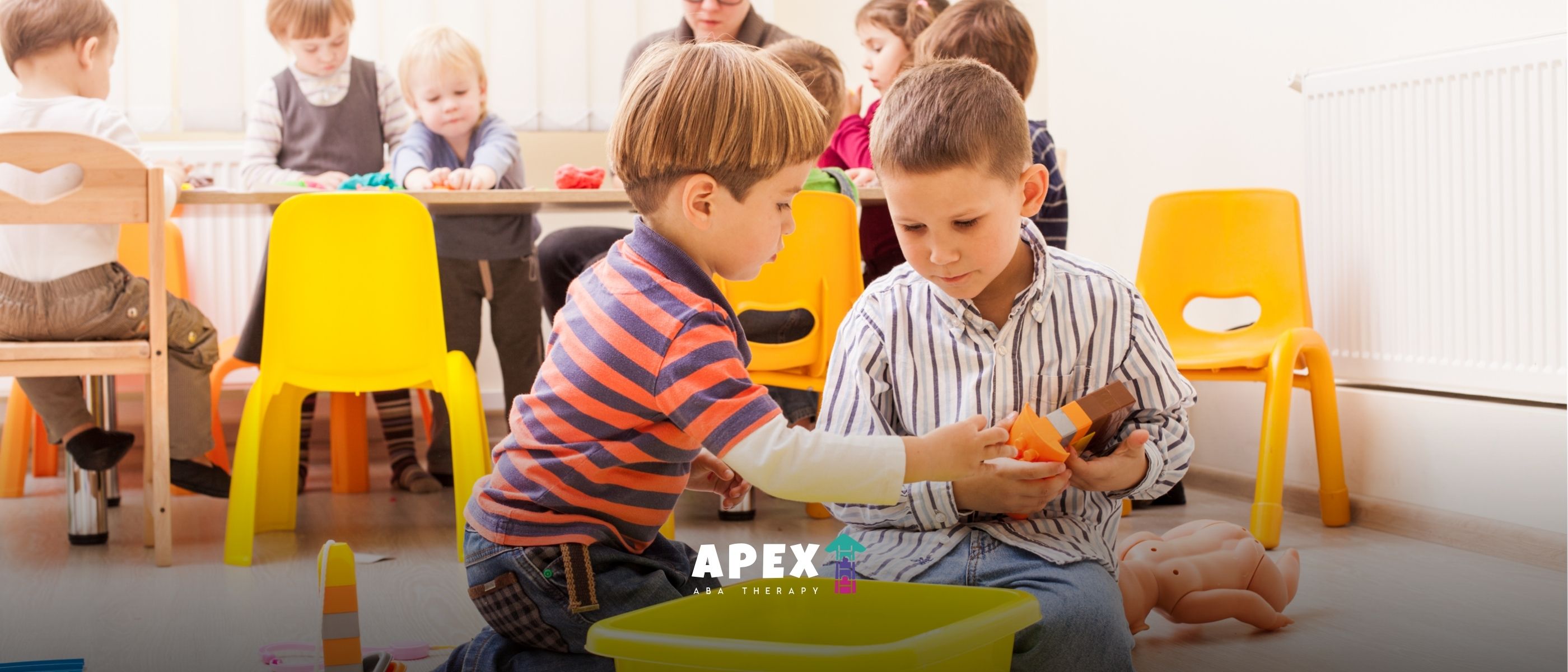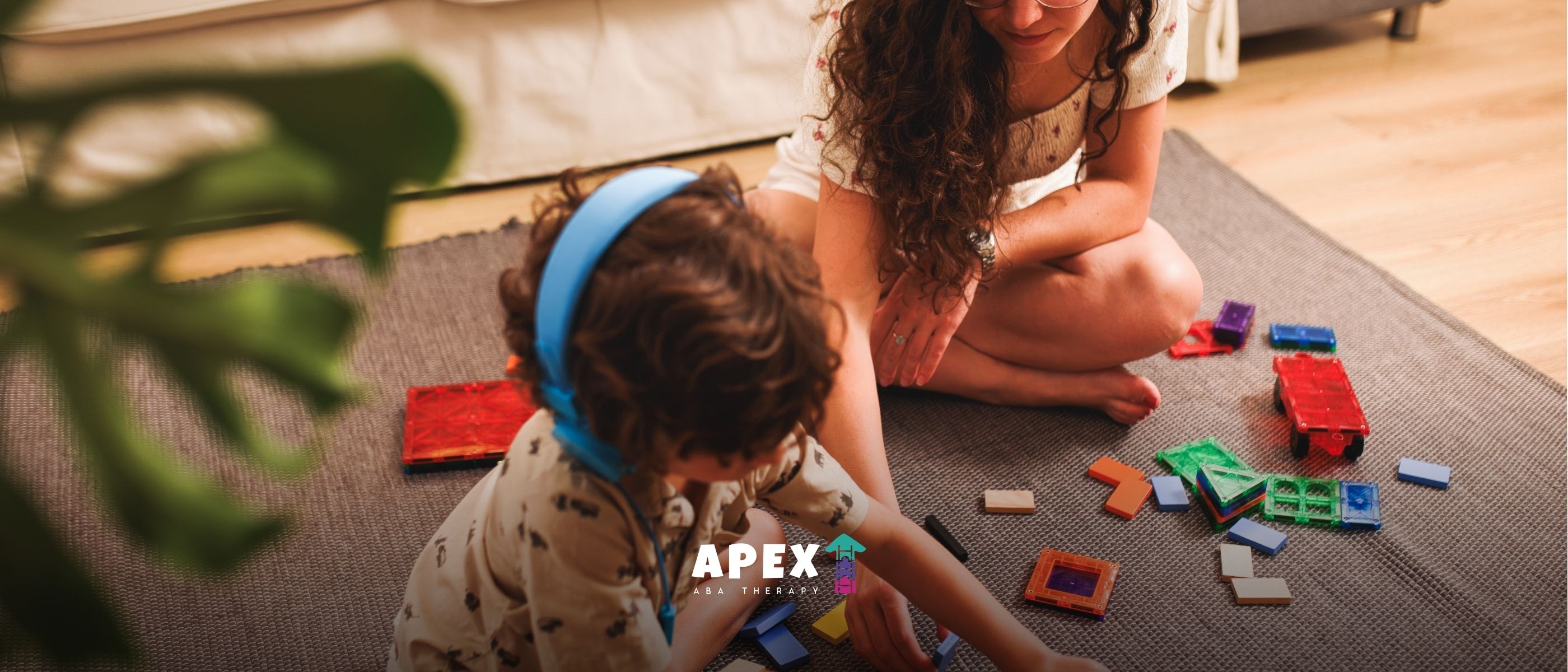Why Do Autistic People Wear Headphones?
Discover the heartfelt reasons behind why autistic individuals choose to wear headphones. It's not just about tuning out noise – it's a personal coping mechanism, providing comfort and control in a world that can be overwhelming.

Why Do Autistic People Wear Headphones?
Why Do Autistic People Wear Headphones?
What is Autism?
Autism, also known as Autism Spectrum Disorder (ASD), is a neurodevelopmental disorder characterized by difficulties in social interaction, communication, and repetitive behaviors. It is a spectrum disorder, meaning that it affects individuals differently, with a wide range of strengths and challenges.
Autistic individuals often have unique sensory sensitivities and may experience difficulties processing sensory information. This can lead to sensory overload, which can be overwhelming and distressing. To cope with these challenges, autistic individuals often develop various coping mechanisms.

Coping Mechanisms for Autistic Individuals
Autistic individuals employ coping mechanisms to manage sensory sensitivities, reduce anxiety, and navigate social interactions. These coping mechanisms can vary depending on the individual and their specific needs. Some common coping mechanisms include:
- Wearing headphones: Many autistic individuals wear headphones to help reduce auditory sensory overload and create a more comfortable environment. The use of headphones can help minimize the impact of loud or unpredictable sounds, providing a sense of control and reducing anxiety.
- Using visual supports: Visual supports, such as visual schedules, social stories, and visual cues, can assist autistic individuals in understanding expectations, navigating routines, and improving communication. These visual tools can provide structure, predictability, and clarity, helping to reduce anxiety and enhance understanding.
- Engaging in deep pressure therapy: Deep pressure therapy, such as the use of weighted blankets or compression garments, can provide a calming and grounding effect for autistic individuals. The gentle, consistent pressure can help regulate sensory input and promote relaxation.
- Utilizing fidget toys and stim toys: Fidget toys and stim toys, such as stress balls, fidget spinners, or textured objects, can serve as a sensory outlet for autistic individuals. These tools allow individuals to redirect their sensory-seeking or self-stimulatory behaviors in a more socially acceptable and self-soothing manner.
- Implementing visual timers and schedules: Visual timers and schedules help autistic individuals understand and manage time, allowing them to anticipate transitions and activities. These visual tools can reduce anxiety by providing a clear sense of structure, predictability, and time allocation.
Understanding and respecting the coping mechanisms of autistic individuals is essential for providing support and creating inclusive environments. By recognizing and accommodating their unique needs, we can foster understanding, acceptance, and a more inclusive society.

Sensory Sensitivities and Headphones
For autistic individuals, sensory sensitivities can significantly impact their daily lives. Various sensory stimuli, such as sounds, lights, and textures, can be overwhelming and cause sensory overload. In order to cope with these challenges, many autistic individuals choose to wear headphones as a coping mechanism.
Sensory Overload and Autism
Autism is a neurodevelopmental disorder that affects an individual's ability to process and respond to information from their environment. One common characteristic of autism is sensory sensitivity, which refers to heightened or unusual reactions to sensory stimuli. This can include hypersensitivity to sounds, lights, smells, textures, and more. The overwhelming nature of these sensory experiences can lead to sensory overload, causing distress and anxiety for autistic individuals.
Why Autistic Individuals Wear Headphones
Wearing headphones is a common coping mechanism adopted by autistic individuals to manage sensory sensitivities and reduce the impact of sensory overload. Here are some reasons why autistic individuals may choose to wear headphones:
- Noise Reduction: Noise sensitivity is a prevalent issue among autistic individuals. Certain sounds that may seem ordinary to others can be distressing and overwhelming for someone with autism. Wearing headphones helps to reduce the intensity of external noises and create a more manageable auditory environment. By minimizing the impact of loud or sudden sounds, headphones can provide a sense of comfort and security.
- Auditory Sensitivities: Autistic individuals may have difficulties with auditory processing, making it challenging to filter and interpret sounds. Wearing headphones can help create a barrier between the individual and the auditory stimuli, allowing them to focus on specific sounds or conversations without being overwhelmed by background noise. This can enhance their ability to understand and engage in their surroundings.
Not all autistic individuals choose to wear headphones, as coping mechanisms can vary from person to person. Some individuals may prefer other strategies, such as using earplugs or noise-canceling devices. The choice of coping mechanism depends on individual preferences and needs.
Understanding and respecting the sensory sensitivities of autistic individuals is crucial for creating inclusive environments. By recognizing the challenges they face and offering support, we can help facilitate a more comfortable and accommodating world for autistic individuals.
Using Headphones as a Coping Mechanism
For many autistic individuals, wearing headphones serves as an effective coping mechanism to navigate the challenges of sensory sensitivities. This section explores the reasons behind using headphones as a coping mechanism and how they contribute to creating a calming environment.
Noise Reduction and Auditory Sensitivities
Autistic individuals often experience heightened sensitivity to sound, a condition known as auditory sensitivity or hypersensitivity. Everyday noises that may seem unremarkable to others can be overwhelming and distressing for someone with autism. This sensitivity can lead to sensory overload and make it difficult for individuals to concentrate or engage in activities.
Wearing headphones provides a practical solution by reducing the impact of external noises. By blocking or dampening sounds, headphones help to create a quieter environment, allowing autistic individuals to better manage their sensory experiences. The reduced auditory input can alleviate stress and improve focus, enabling individuals to engage more effectively in their daily activities.
Creating a Calming Environment
Beyond noise reduction, headphones play a crucial role in creating a calming environment for autistic individuals. The act of putting on headphones can provide a sense of control and comfort, acting as a barrier between the individual and the overwhelming external world. This physical barrier can help in reducing the impact of environmental stimuli, allowing individuals to regulate their sensory experiences.
In addition to wearing headphones, creating a calming environment involves other strategies as well. For instance, individuals may find relief in adjusting lighting levels, using soft colors, or incorporating specific textures in their surroundings.
It's important to understand that each autistic individual has unique preferences and sensitivities, so it's essential to tailor the environment to their specific needs. By understanding the individual's sensory sensitivities and preferences, caregivers and support networks can work together to create an environment that promotes comfort and reduces sensory overload.
Understanding why autistic individuals wear headphones and the benefits they provide is crucial in supporting their well-being. It's important to respect an individual's choice to wear headphones and recognize that it is a coping mechanism to manage sensory sensitivities. By acknowledging and accommodating their needs, we can create more inclusive environments that foster understanding and support for autistic individuals.
Alternatives to Headphones
While headphones can be a helpful coping mechanism for autistic individuals dealing with sensory sensitivities, there are other alternatives that can provide similar benefits. In this section, we will explore two alternatives: earplugs and noise-canceling devices, as well as visual supports and tools.
Earplugs and Noise-Canceling Devices
For individuals who find headphones uncomfortable or prefer a different approach, earplugs and noise-canceling devices can be effective alternatives. Earplugs, typically made of foam or silicone, help to reduce the overall volume of surrounding sounds. They are compact and portable, making them convenient to carry and use in various settings.
Noise-canceling devices, such as earmuffs or noise-canceling headphones, actively work to block out or reduce background noise. These devices use technology to produce sound waves that cancel out external noise, providing a quieter environment. They can be particularly beneficial in loud or crowded places where sensory overload is more likely to occur.
When considering earplugs or noise-canceling devices, it's important to find the right fit and level of noise reduction that suits the individual's needs. Some individuals may prefer a gradual reduction in noise, while others may require a higher level of noise cancellation. It may be helpful to consult with a healthcare professional or therapist specializing in autism to determine the most suitable option.
Visual Supports and Tools
In addition to managing auditory sensitivities, visual supports and tools can also assist autistic individuals in coping with various challenges. Visual supports can include visual schedules, social stories, and visual cues that help individuals understand and navigate daily activities and routines. These visual aids provide predictability, structure, and clarity, which can reduce anxiety and improve communication.
Visual tools, such as timers and countdown clocks, can assist with time management and transitions. They provide a visual representation of time, helping individuals understand how much time is remaining for a specific task or activity. This visual support can reduce stress and promote a sense of control and independence.
It's important to personalize visual supports and tools based on individual preferences and needs. What works for one person may not work for another, so it's crucial to consider the unique characteristics and strengths of each individual with autism.
By exploring alternatives to headphones, such as earplugs, noise-canceling devices, and visual supports and tools, autistic individuals and their caregivers can find coping mechanisms that suit their specific needs.
It's essential to understand that everyone's sensory experiences and preferences may differ, so it may take some trial and error to find the most effective strategies. Supporting and accommodating these individual needs can greatly contribute to creating inclusive and supportive environments for autistic individuals.
Additional Coping Mechanisms for Autistic Individuals
In addition to wearing headphones, there are various coping mechanisms that can provide support and comfort for autistic individuals. These strategies aim to help manage sensory sensitivities, reduce anxiety, and promote self-regulation. Here are three additional coping mechanisms commonly utilized by autistic individuals:
Deep Pressure Therapy
Deep pressure therapy, also known as deep touch pressure, involves applying pressure to the body to promote relaxation and reduce anxiety. This technique can be achieved through various methods, such as weighted blankets, compression garments, or gentle massages.
The deep pressure provides a calming effect by stimulating the release of serotonin, a neurotransmitter associated with feelings of well-being. It can help alleviate sensory sensitivities and provide a sense of comfort for individuals with autism.
Fidget Toys and Stim Toys
Fidget toys and stim toys are objects that individuals can manipulate or interact with to help regulate their sensory experiences and reduce anxiety. These toys can provide a focal point for attention and help redirect sensory-seeking behaviors in a more socially acceptable way. Fidget toys come in various forms, including stress balls, sensory rings, and fidget spinners.
Stim toys, on the other hand, are specifically designed to provide sensory stimulation, such as textured surfaces, squishy materials, or items that produce auditory feedback. These toys can be highly personalized based on an individual's specific sensory needs and preferences.
Visual Timers and Schedules
Visual timers and schedules are visual aids that help individuals with autism understand and manage their daily routines. These tools provide a visual representation of time, offering a clear structure and helping individuals anticipate and transition between activities. Visual timers can be used to set specific time limits for tasks or breaks, promoting time management skills and reducing anxiety related to time pressure.
Visual schedules, on the other hand, outline the sequence of activities in a visual format, often using pictures or symbols. This allows individuals to have a clear understanding of what to expect throughout their day, providing a sense of predictability and reducing uncertainty.
By incorporating these additional coping mechanisms, individuals with autism can better navigate sensory sensitivities and promote their overall well-being. The effectiveness of each coping mechanism may vary for each individual, so it's crucial to understand and respect their unique needs. Creating an inclusive environment that supports and embraces neurodiversity is key to ensuring the well-being and success of autistic individuals.
Supporting Autistic Individuals
Supporting autistic individuals is crucial in helping them navigate their daily lives and thrive in their unique strengths and abilities. By understanding their individual needs, encouraging self-advocacy, and creating inclusive environments, we can provide the necessary support for autistic individuals to flourish.
Understanding Individual Needs
Each autistic individual is unique, and it's important to approach their needs with sensitivity and understanding. Taking the time to learn about their specific challenges, preferences, and strengths can help create a supportive environment. Some individuals may have sensory sensitivities, while others may struggle with social interactions or communication.
By recognizing and respecting their individual needs, we can adapt our approach to accommodate and support them effectively. This may involve providing visual supports, allowing for breaks or quiet spaces, and using clear and concise communication strategies. Understanding the specific needs of each individual is vital in creating a supportive and inclusive environment.
Encouraging Self-Advocacy
Empowering autistic individuals to advocate for themselves is essential for their personal growth and self-esteem. Encouraging self-advocacy means promoting their ability to express their needs, preferences, and concerns. By giving them a voice, we help them develop self-confidence and independence.
Supporting self-advocacy can include teaching communication skills, providing opportunities for making choices, and fostering open and respectful dialogue. By involving autistic individuals in decision-making processes and valuing their input, we empower them to become advocates for their own needs and rights.
Creating Inclusive Environments
Creating inclusive environments is crucial for supporting autistic individuals in all aspects of life. Inclusion means designing spaces, activities, and social interactions that are accessible and accommodating for everyone. By considering the diverse needs of autistic individuals, we can promote their participation and well-being in various settings.
Inclusive environments can involve sensory-friendly spaces, where lighting and noise levels are adjusted to minimize sensory overload. Providing clear communication and visual supports can also enhance understanding and participation. Additionally, fostering a culture of acceptance, respect, and understanding among peers and within the community creates an inclusive atmosphere that benefits everyone.
By understanding individual needs, encouraging self-advocacy, and creating inclusive environments, we can support autistic individuals in living fulfilling and meaningful lives. It's important to remember that each individual is unique, and their support requirements may vary. By embracing neurodiversity and promoting inclusivity, we can create a society where autistic individuals can thrive and contribute their unique talents and strengths.
Summary
The choice of wearing headphones among autistic individuals is a deeply personal and meaningful one. It goes beyond a simple desire for noise reduction; instead, it serves as a coping mechanism in a world that can often feel overwhelming. By wearing headphones, autistic individuals can create a safe space for themselves, allowing them to navigate their surroundings more comfortably and find solace in a cacophonous world.
It's a small yet powerful tool that fosters a sense of control and helps them manage sensory sensitivities. Understanding and respecting this choice not only promotes inclusivity but also highlights the diverse ways people navigate the complexities of their unique experiences. So, the next time you see someone with headphones, remember that it's more than just a fashion statement – it's a tool for self-care and a testament to the resilience of individuals navigating the spectrum.
Sources
Frequently Asked Questions

Understanding Peer-Mediated Instruction in Autism
Discover the benefits of Peer-Mediated Instruction in Autism and how it can enhance learning experiences for individuals with autism.

Child Led ABA: Encouraging Growth Through Play and Fun
Discover how child led aba promotes growth through play and fun.

Rigid ABA: Essential Techniques for Effective Therapy
Discover essential techniques in rigid aba therapy that can enhance your practice.



